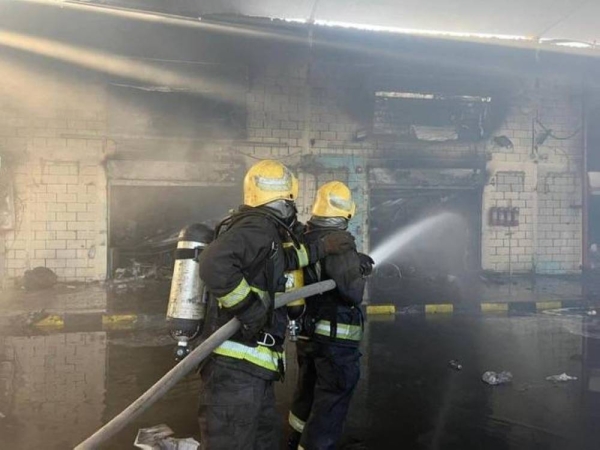
It is unclear whether Cop27 will have any real impact on efforts to halt climate change but one leader is likely to return from the international summit feeling that the trip to Egypt was well worth it: the Venezuelan president, Nicolás Maduro.
After years of being frozen out of international relations the Latin American dictator used Cop27 to clearly – if controversially – demonstrate that he is back on the international stage.
During the conference, the South American strongman was seen with a string of influential international figures, including the US special presidential envoy for climate, John Kerry, the French president, Emmanuel Macron, and Portugal’s prime minister, António Costa.
The US state department spokesman, Ned Price, played down the significance of Maduro’s “very much unplanned interaction” with Kerry. The former secretary of state “was caught by surprise” at Cop27, Price said.
But the presence of Maduro – who has one of Latin America’s worst environmental and human rights records – made leaders at the summit visibly uncomfortable and puzzled analysts.
“My immediate reaction was ‘What on earth is one of the world’s worst climate offenders doing at a summit meant to address the climate crisis?’” said Geoff Ramsey, director for Venezuela at the Washington Office on Latin America, a DC-based thinktank.
Maduro had been an international pariah since his 2018 re-election amid widespread allegations of fraud, which prompted a global effort to remove him from power.
More than 50 nations recognised the opposition leader Juan Guaidó as Venezuela’s president, but Maduro stubbornly clung to power, using security forces to clamp down on dissent.
His return to the international frame has been enabled in part by the war in Ukraine. US officials have twice visited Caracas as Washington explores how to replace Russian oil imports, and the two countries exchanged prisoners in October. Washington is even discussing lifting some sanctions on Venezuela if Maduro holds free elections.
After accepting that efforts to force Maduro out had failed and that support for Guaidó has fizzled, the global north is bringing the Venezuelan leader back in from the cold in the name of pragmatism, said Ramsey.
“Western leaders are re-engaging with the person who’s actually in charge,” he said.
And Maduro has seized Cop27 as the opportunity to gleefully inform his foreign counterparts that he is back on the international scene in a series of awkward on-camera encounters.
“When are you visiting us?” a grinning Maduro joked to Macron whose government officially recognises Guaidó as Venezuela’s president.
Maduro also managed to squeeze in some some sightseeing, tweeting holiday snaps in front of Egypt’s most popular sights.
He even hosted an event with the Colombian president, Gustavo Petro, and Suriname’s president, Chan Santokhi, to call for a new alliance to protect the Amazon rainforest.
Petro, who recently restored diplomatic relations with Caracas, is part of a wave of recently elected leftist Latin American leaders who have favoured engagement with the former regional outcast.
But the Venezuelan’s impromptu diplomatic discussions may have undermined a summit upon which the future of the Amazon rainforest – and the planet – could hinge, experts said.
“Cop should have been about future plans to make a tangible difference to protect the Amazon and combat climate change, not granting a political platform for people using the summit for a secondary political agenda,” said Bram Ebus, a consultant for International Crisis Group.
As well as overseeing a litany of egregious state-led human rights abuses, including the imprisoning and torture of journalists and politicians, Maduro’s government has quietly driven the destruction of the country’s rainforests.
Venezuela has the fastest accelerating rate of forest loss in Latin America according to Clima21, an NGO investigating environmental degradation in the Caribbean country.
Much of that destruction is in the Orinoco Mining Arc, a 110,000 sq km expanse of dense rainforest in the east of the country which stretches into the Amazon.
Maduro opened up the area to mining in 2016 and it has since become a lawless, disease-plagued region under the control of armed groups clearing the forest and poisoning its rivers.
Venezuela’s military turns a blind eye to the activities of drug-trafficking militias such as the Colombian ELN rebels in return for a share of their profits.
“Inviting Maduro to a climate conference is like asking an arsonist to put out a fire,” Ramsey said. “He has presided over the massive destruction of rainforest habitats, overseeing a free for all in illicit mining which has poisoned large swaths of the Orinoco River Basin.”
Maduro’s corridor diplomacy may be little more than crafty opportunism and some TV optics, but it will strengthen the dictator’s support at home, said Ebus.
“These images will run constantly on Venezuelan state television. Just the fact he is appearing in front of a camera shaking hands with foreign presidents and politicians is something that will be used in Venezuela to convince his own political base that he still matters on the world stage.”












